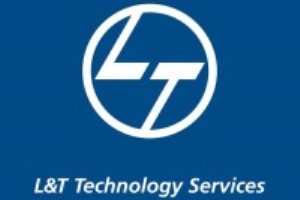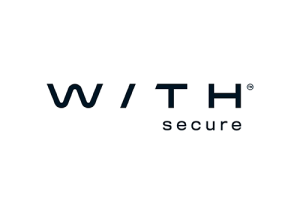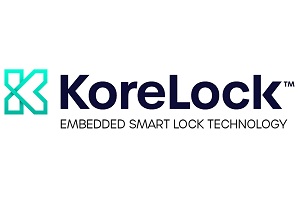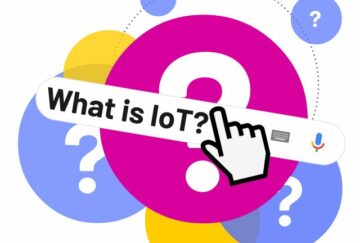Zenput’s sensors and cloud-based software help some of the world’s biggest brands gain actionable insights into temperatures, expiration dates and other safety and compliance information across multiple sites. With Laird Connectivity, these companies stay nimble and flexible against changing conditions, supply chain delays and additional challenges in the food supply chain.
One of the most popular use cases for IoT continues to be in cold chain monitoring. Particularly in the food service industry, the wireless sensor and gateway-based approach is a complete transformation of the legacy systems previously used to monitor compliance. Anything that can be captured digitally can be traced and monitored intelligently, and solutions providers are enabling unprecedented business outcomes via acquisition, monitoring and actionability of up-to-date compliance data.
Zenput is an operations execution platform that provides some of the biggest brands in the world with the tools to ensure consistency, compliance and safety in many locations simultaneously. Via its cloud-based platform, brands can gather the information they need to execute flawlessly on their food safety processes, brand standards and other operating procedures that are the difference between success and failure.
Brands accomplish this by abstracting away the outdated, ineffective means of logging and compliance that are no longer suited for a modern business. Paper-and-pencil compliance checks are no longer enough to ensure consistency and quality with up to-the-minute accuracy. Manual checks occupy dozens of hours a day across large organisations. They’re vulnerable to errors and inaccuracies and can’t be monitored collectively across locations in a centralised manner. In addition, they lag behind and are infrequent enough that predictive maintenance cues, such as rising temps in refrigeration equipment, may be missed until it is too late.
Zenput’s software is designed to address the specific challenges and objectives of operators in industries like food service. The company’s challenge was bringing the right hardware to the table. Having worked with previous hardware vendors, their offerings presented multiple challenges: inconsistent connectivity, as well as proprietary technologies that amounted to a black box and created supply chain bottlenecks that limited scale-up opportunities for Zenput’s customers.
It therefore needed a partner to provide sensors with reliable, robust connectivity that were customisable and accessible via open wireless standards. It needed the transparency and flexibility offered by a true partner with a product designed for open, accessible development.
Room to grow
Zenput evaluated, and ultimately selected, Laird Connectivity’s line of Sentrius gateways and sensors to add to its range of supported IoT hardware. The Sentrius RS1xx sensors and RG1xx gateways presented the perfect combination of customisation, configurability and durable wireless connectivity. Where Zenput’s previous hardware selections were based on proprietary RF protocols that made it difficult if not impossible to troubleshoot connectivity issues, the Sentrius series of IoT devices represented a fully- featured, truly useful hardware platform for collecting and acquiring IoT sensor data into the Zenput ecosystem.
Firstly, the protocol: The Sentrius sensors and gateways use LoRaWAN as their main connectivity interface. LoRaWAN, a standards-based protocol, allows wireless communications over very long ranges and also performs particularly well in Zenput’s customers’ target environments. In kitchens, coolers and other RF-reflective environments, LoRaWAN provides exceptional connectivity that resists scattering and other interference issues that can bring down other types of connections. It’s a well-documented, growing, and accessible protocol that gives engineers the ability to see what’s happening in the connection and troubleshoot issues accordingly.
Secondly, the RG1xx and RS1xx are open, fully-configurable devices that run on a Linux subsystem and present a truly useful development platform. More than simply a hardware offering, they represent a fully customisable, configurable data platform for emerging IoT applications. The RS1xx sensors support multiple RTD sensor options for low, medium and high temperature applications, meaning Zenput and its customers had access to temperature sensing from -100°C to +450°C. They’re accessible via the Sentrius mobile application for configuration and debug logging, and they’re compatible with any LoRaWAN network server or gateway. And the RG1xx gateway is configurable and accessible via a web-based GUI with pre-loaded support for several common LoRaWAN packet forwarders and a full onboard Linux OS.
These two lead to a third critical benefit: As Zenput looked to expand its hardware offerings, it found LoRaWAN IoT devices to provide the most flexibility and resilience to ongoing supply chain challenges. With its previous selection of proprietary hardware and a proprietary RF protocol, the lock-in factor limited original equipment manufacturers (OEMs) who wanted options to expand their device portfolios. But with standards-based devices, Zenput and its customers could mix and match LoRaWAN gateways and sensors as needed in the face of supply chain shortages and other unpredictable global factors. If one vendor’s hardware suddenly becomes unavailable, it’s as simple as integrating another standards– based piece of hardware that utilises the open and available LoRaWAN standard. No longer constrained and bottlenecked by availability, Zenput had the freedom to adaptively respond to challenges and continue to mix and match in its sensor and gateway network based on availability, not on a limited set of proprietary options.
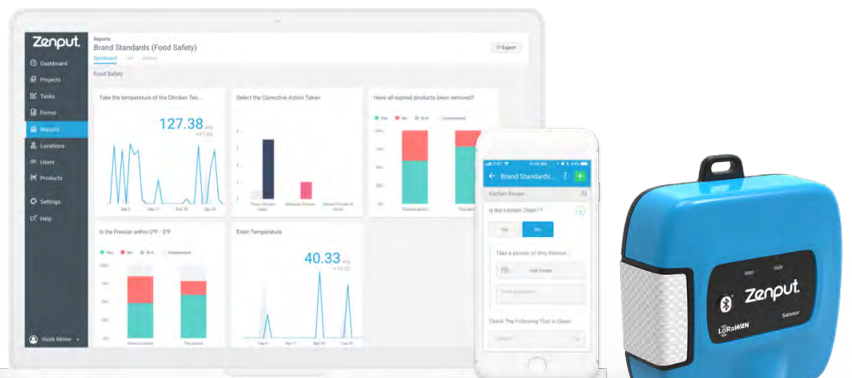

A tailor-made system
Laird Connectivity’s Sentrius RG1xx gateways and RS1xx sensors served as the next generation of Zenput hardware, giving customers a universal protocol for their IoT applications and a deeply customisable route forward for gathering actionable IoT data. Utilising a gateway with open RF standards means the ability to bring more sensors an more devices to the table: and as Zenput’s use cases expand and more sensors are needed for new applications, it can rely on the transparent and accessible LoRaWAN standard as a compatibility guarantee for new devices.
Zenput brings operations excellence to customers in some of the biggest brands in the world, including Taco Bell, Dominos and Chipotle. The platform offers a real-time look at conditions across multiple locations on a growing number of measurables and gives operators visibility and control over processes like temperature checks, expiry dates, predictive maintenance, and ultimately a higher quality offering for their customers.
The Sentrius RG1xx gateways and RS1xx sensors provide robust connectivity, multiple backhaul routes to the cloud (Wi-Fi, Ethernet, and LTE) and full access for configuration and debugging. In addition, the gateways and sensors represent a clear and open route to expanding sensor applications in the future with well-established and accessible protocols that help Zenput expand its core business. Laird Connectivity’s global support team is available to help integrate new data points as Zenput and its customers identify new data points, applications and new ways to achieve operational excellence.
Laird Connectivity’s Sentrius series is the opposite of a closed, proprietary ecosystem that locks in OEMs and creates barriers to development. Rather, it serves as an open platform for development and a door to the future of actionable IoT intelligence.
Comment on this article below or via Twitter: @IoTNow_OR @jcIoTnow
- SEO Powered Content & PR Distribution. Get Amplified Today.
- PlatoData.Network Vertical Generative Ai. Empower Yourself. Access Here.
- PlatoAiStream. Web3 Intelligence. Knowledge Amplified. Access Here.
- PlatoESG. Automotive / EVs, Carbon, CleanTech, Energy, Environment, Solar, Waste Management. Access Here.
- PlatoHealth. Biotech and Clinical Trials Intelligence. Access Here.
- ChartPrime. Elevate your Trading Game with ChartPrime. Access Here.
- BlockOffsets. Modernizing Environmental Offset Ownership. Access Here.
- Source: https://www.iot-now.com/2023/08/10/133856-zenput-always-on-temperature-monitoring-elevates-food-safety-execution/
- :is
- :not
- :where
- $UP
- 160
- a
- ability
- access
- accessible
- accordingly
- accuracy
- Achieve
- acquisition
- across
- add
- addition
- address
- against
- allows
- an
- and
- Another
- any
- anything
- Application
- applications
- approach
- ARE
- article
- AS
- At
- auto
- availability
- available
- away
- barriers
- based
- BE
- becomes
- below
- benefit
- between
- Biggest
- Black
- bottlenecks
- Box
- brand
- brands
- bring
- Bringing
- Brings
- business
- but
- by
- CAN
- captured
- cases
- centralised
- chain
- challenge
- challenges
- changing
- Checks
- clear
- closed
- Cloud
- Collecting
- collectively
- combination
- Common
- Companies
- Company’s
- compatibility
- compatible
- complete
- compliance
- conditions
- Configuration
- connection
- Connections
- Connectivity
- constrained
- continue
- continues
- control
- Core
- could
- created
- creates
- critical
- Customers
- customisable
- data
- Data Platform
- data points
- Dates
- day
- delays
- designed
- Development
- device
- Devices
- difference
- difficult
- digitally
- Door
- down
- dozens
- ecosystem
- emerging
- enabling
- Engineers
- enough
- ensure
- environments
- equipment
- Errors
- evaluated
- Excellence
- exceptional
- execute
- execution
- Expand
- expiry
- Face
- factor
- factors
- Failure
- featured
- Flexibility
- flexible
- food
- food service
- food supply
- food supply chain
- For
- Forward
- found
- Freedom
- from
- full
- fully
- future
- Gain
- gateway
- gateways
- gather
- gathering
- generation
- gives
- Giving
- Global
- Growing
- guarantee
- had
- Happening
- Hardware
- having
- help
- higher
- HOURS
- HTTPS
- if
- impossible
- in
- Including
- industries
- industry
- information
- insights
- integrate
- Integrating
- Intelligence
- Interface
- into
- iot
- iot devices
- issues
- IT
- ITS
- large
- Late
- Legacy
- like
- Limited
- Line
- linux
- locations
- Locks
- logging
- longer
- Look
- looked
- Low
- made
- Main
- maintenance
- manner
- manual
- Manufacturers
- many
- Match
- max-width
- May..
- meaning
- means
- missed
- mix
- Mobile
- Modern
- monitoring
- more
- most
- Most Popular
- multiple
- Need
- needed
- network
- New
- news
- next
- nimble
- no
- now
- number
- of
- offered
- offering
- Offerings
- Offers
- on
- Onboard
- ONE
- ongoing
- open
- operating
- operational
- Operations
- operators
- opportunities
- opposite
- Options
- or
- Organisations
- original
- OS
- Other
- outcomes
- over
- particularly
- partner
- perfect
- performs
- piece
- platform
- plato
- Plato Data Intelligence
- PlatoData
- points
- Popular
- portfolios
- present
- presented
- previously
- procedures
- processes
- Product
- proprietary
- protocol
- protocols
- provide
- providers
- provides
- quality
- range
- rather
- real-time
- reliable
- rely
- Reports
- resilience
- Respond
- right
- rising
- robust
- Route
- routes
- Run
- Safety
- scale-up
- see
- selection
- sensors
- Series
- serves
- service
- set
- several
- shortages
- Simple
- simply
- simultaneously
- Sites
- Software
- Solutions
- some
- specific
- standard
- standards
- stay
- success
- such
- supply
- supply chain
- Supply Chain Challenges
- support
- Supported
- Systems
- table
- Target
- team
- Technologies
- than
- that
- The
- The Future
- the information
- the world
- their
- therefore
- These
- they
- Third
- this
- to
- too
- tools
- Transformation
- transparent
- true
- truly
- two
- types
- Universal
- unprecedented
- unpredictable
- until
- up-to-date
- use
- used
- utilises
- vendors
- via
- visibility
- Vulnerable
- wanted
- was
- ways
- web-based
- WELL
- were
- WHO
- Wi-fi
- wireless
- with
- worked
- world
- world’s
- XML
- zephyrnet


